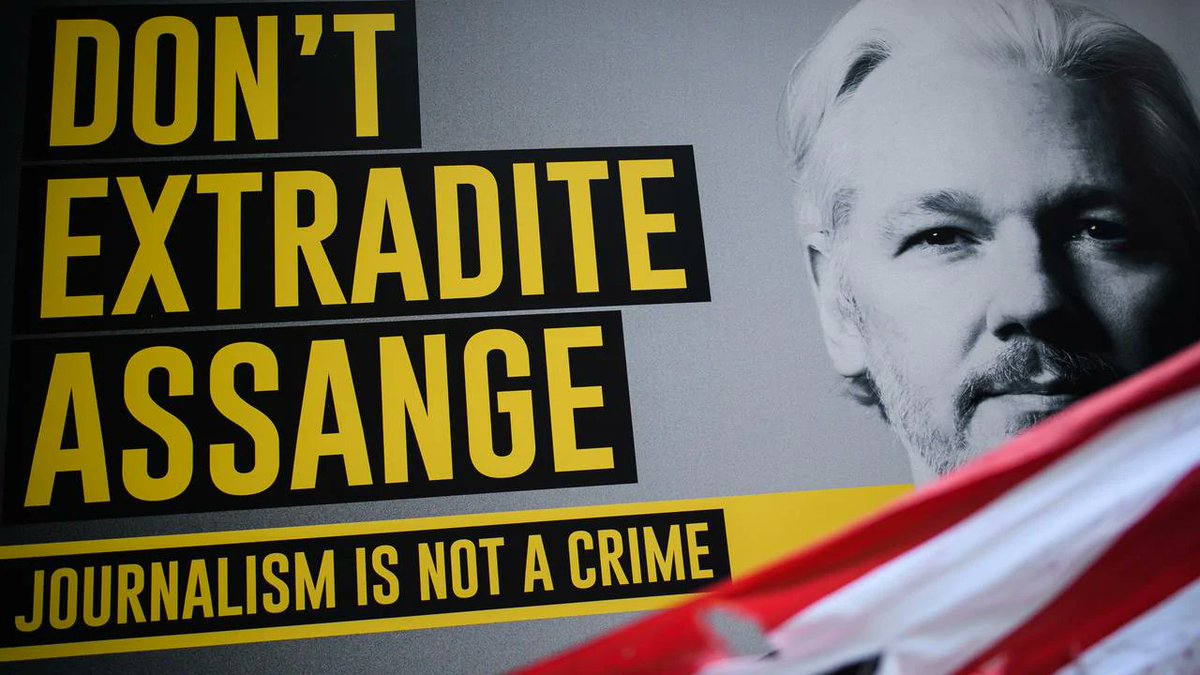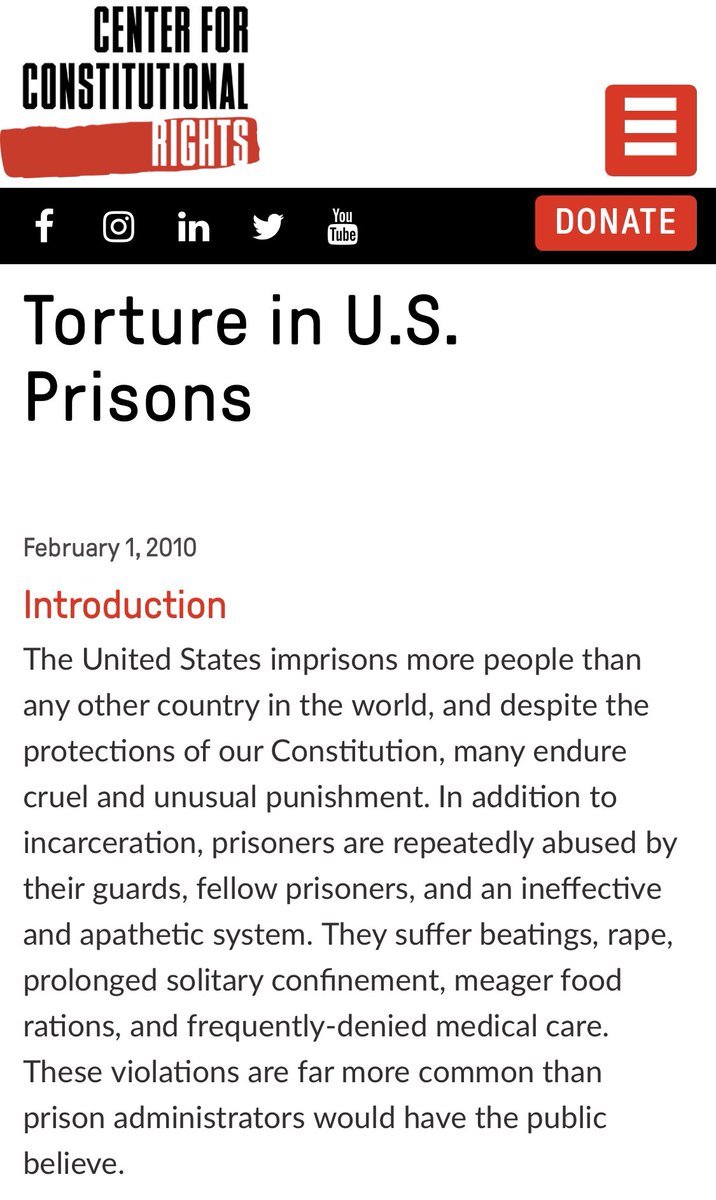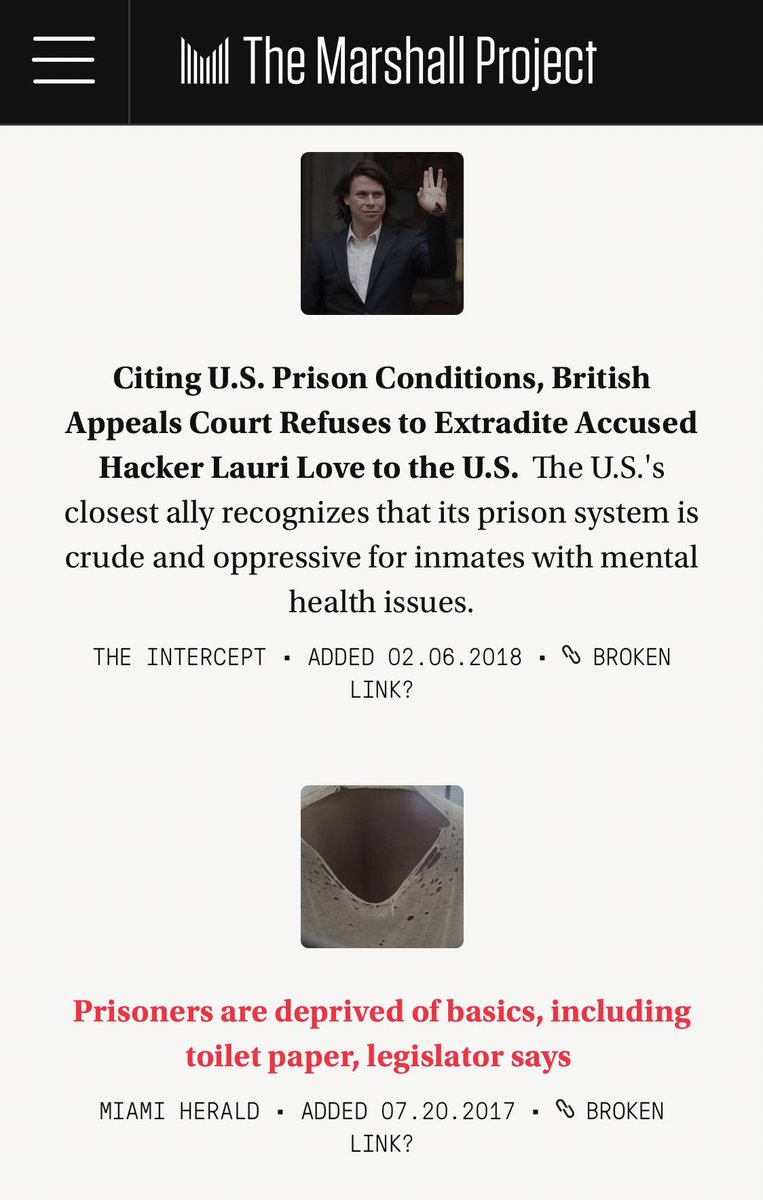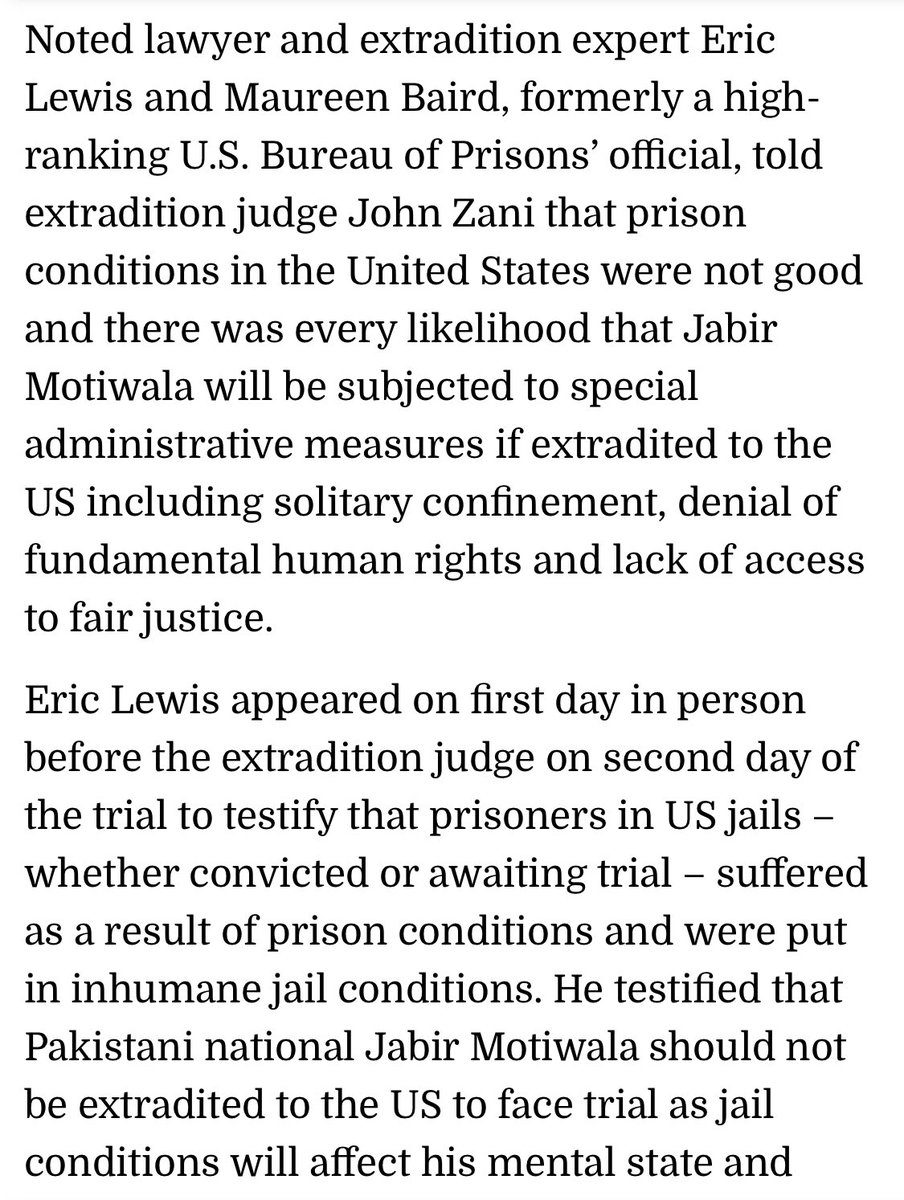While previous testimonies have focused on matters of US constitutional law, the Esp. Act., redaction of cables – today& #39;s testimonies will focus primarily on Julian& #39;s health and the effects prolonged confinement have had on him and may have if taken to the US. #Assange
https://twitter.com/StellaMoris1/status/1308322167898202117">https://twitter.com/StellaMor...
Today& #39;s first expert witness is Dr. Michael Kopelman, Emeritus Professor of Neuropsychiatry, King’s College London.
Defense begin examining Kopelman.
Kopelman states that he found symptoms of depression and a high risk of suicide with the patient. These symptoms would be exacerbated if taken to the US.
Kopelman states that he found symptoms of depression and a high risk of suicide with the patient. These symptoms would be exacerbated if taken to the US.
In addition, Kopelman found Julian to be suffering from Post Traumatic Stress Disorder (PTSD) and anxiety. Some hallucinations but these were alleviated with medication. A secondary diagnosis also confirmed Asperger& #39;s.
Kopelman: if extradited, chances of suicide would surely increase. Patient would be confined to solitary most of the time, no way of contacting friends and family.. Farewell plans have already been drawn up, having spoken to a priest and written up a will, etc.
Defense finishes examining the witness.
Prosecution rises to cross-examine.
Prosecution rises to cross-examine.
Lewis asking Kopelman how he arrived at these diagnoses. Kopelman apparently not very fond of the International Classification of Diseases (ICD) and Diagnostic and Statistical Manual of Mental Disorders (DSM–5). These are used world-wide for classification of illnesses.
Lewis asks Kopelman how one defines a depressive episode, what constitutes a recurring depressive episode..
Kopelman says the above should be diagnosed by qualified persons and not read out of the manual in a "cook-book" fashion by those with no clinical training or experience.
Kopelman says the above should be diagnosed by qualified persons and not read out of the manual in a "cook-book" fashion by those with no clinical training or experience.
Lewis essentially trying to get Kopelman to admit that Julian only has "mild" depression because he hasn& #39;t completely ceased to function.
Kopelman replies he found symptoms of a more serious condition due to hallucinations; the patient did have trouble functioning at times.
Kopelman replies he found symptoms of a more serious condition due to hallucinations; the patient did have trouble functioning at times.
Lewis challenges Kopelman& #39;s credentials, qualifying him as a neuropsychiatrist and not a forensic psychiatrist. This comes across as rather amusing to Kopelman who reminds Lewis that he acquired Kopelman& #39;s services as of recently in a different case.
Lewis brings up the term "malingering", suggesting #Assange may be possibly faking his illness. Kopelman strongly objects to this, saying he& #39;s trained to look out for these things. Lewis replies that clinical experience is not all it takes.
Back and forth between Kopelman and Lewis regarding one instance where Julian confided in a prison psychologist that he had hidden away a razor blade. Lewis inquires as to the nature of the blade.
Kopelman informs Lewis that despite this incident being self-reported, it was discussed with prison staff and most importantly: it isn& #39;t the only factor that informed his decision making regarding diagnosis of the patient.
I really hope the media report on the above with some dignity, without sensationalizing and further stigmatizing mental health issues, not just for Julian but for everyone& #39;s sake. What #Assange is being put through is no laughing matter. This is inhumane, cruel treatment.
Lewis is desperately hanging on to this idea of malingering because of two self-reported instances by Assange..
Kopelman informs Lewis that his diagnoses do not depend solely on the above, several other factors are taken into consideration.
Kopelman informs Lewis that his diagnoses do not depend solely on the above, several other factors are taken into consideration.
Lewis asks Kopelman why he left out that Assange reads the British Medical Journal. (Are psychiatrists supposed to memorize their patients& #39; reading list?)
What an absurd insinuation that Julian somehow learned to fake mental illness from reading a few issues of BMJ and it& #39;s not his arbitrary confinement and imprisonment of almost a decade that has impacted his mental health.
Kopelman replies that Julian read BMJ because he& #39;s a little "hypochondriacal". Lewis reasserts this should& #39;ve "rang alarm bells" and starts rattling off a list of trivial things that Kopelman allegedly left out of his report on purpose (once again, discredit the expert witness).
Kopelman informs Lewis that his report is already long enough as it is. If he looks hard enough he can always find things that were left out, nonetheless the report only contains things he found to be pertinent to psychiatric matters and relevant to Julian& #39;s health.
Lewis brings up brief evaluations that were previously done on the way to court during which Assange reportedly said "he was fine". Kopelman asserts these short summaries are not indicative of a full psychiatric evaluation and that Julian speaks and confides more in him.
Kopelman explains that Julian& #39;s reluctance to confide in prison staff most likely emanates from concerns that he might be put on suicide watch or in more restrictive detention.
Lewis blatantly and embarrassingly tells Kopelman he& #39;s attempting to alter his diagnosis of #Assange& #39;s mental health. Kopelman slaps him down, reminding him he& #39;s a laywer not a shrink lol. (Sounds like a response a lawyer would give, to be fair.)
Lewis QC through his various suggestions seems to think that consumption of milk and oranges and playing pool on occasion is indicative of perfect mental well being and physical strength.
NHS should thank their lucky stars he did not become a doctor.
NHS should thank their lucky stars he did not become a doctor.
Lewis refers to Assange& #39;s fear of being overheard and recorded, asking if this constitutes delusion. Kopelman says given his experiences at the embassy (see: UC Global) this seems like a rational anxiety response. (Obviously it& #39;s not delusional if it& #39;s anchored in reality?).
Lewis is disputing patient& #39;s history of mental illness, citing a single diagnosis of depression from 1995.
Back and forth between Lewis and Kopelman about wording used by Suelette Dreyfus regarding hallucinations.
Court adjourns for lunch.
Back and forth between Lewis and Kopelman about wording used by Suelette Dreyfus regarding hallucinations.
Court adjourns for lunch.
Court resumes.
Lewis continues X-examination of Kopelman. Lewis unconvinced patient suffers from auditory hallucinations because they are self-reported.
Kopelman: most psychiatric evaluation is reliant upon self-reports. You can’t employ an MRI scanner to detect hallucinations.
Lewis continues X-examination of Kopelman. Lewis unconvinced patient suffers from auditory hallucinations because they are self-reported.
Kopelman: most psychiatric evaluation is reliant upon self-reports. You can’t employ an MRI scanner to detect hallucinations.
Lewis points out Kopelman did not disclose Julian’s partner Stella Morris and 2 kids in 1st report.
Kopelman says this was done out of respect, relationship was not public.
Lewis says his obligation is to the court first.
Kopelman he put it in 2nd report, after it was public.
Kopelman says this was done out of respect, relationship was not public.
Lewis says his obligation is to the court first.
Kopelman he put it in 2nd report, after it was public.
Prosecution turns to UN torture report by @NilsMelzer
Lewis asks Kopelman why he relied on this document and if he agrees it’s unbalanced & inaccurate.
Kopelman says he realized it contained some political language but it didn’t form the entire basis of his evaluation. #Assange
Lewis asks Kopelman why he relied on this document and if he agrees it’s unbalanced & inaccurate.
Kopelman says he realized it contained some political language but it didn’t form the entire basis of his evaluation. #Assange
Lewis calls @NilsMelzer’s report “nonsense”, begins quoting from it to Kopelman.
Kopelman inquires why Lewis is examining him on material that he did not use in his report (political comments contained in torture report).
Kopelman inquires why Lewis is examining him on material that he did not use in his report (political comments contained in torture report).
Lewis insists the political commentary in @NilsMelzer shows the report is unbalanced therefore and disqualifies the entire thing.
Lewis accuses Kopelman of cherry-picking.
Kopelman affirms indeed he did cherry-pick— the parts relating to #Assange’s health, leaving the rest.
Lewis accuses Kopelman of cherry-picking.
Kopelman affirms indeed he did cherry-pick— the parts relating to #Assange’s health, leaving the rest.
Lewis insists that #Assange does not have depression, citing his ability to follow court proceedings.
Lewis refers to #Assange saying he doesn’t wish to be extradited and other comments made from the dock as indication that Assange is able to function and therefore not severely depressed.
Kopelman disagrees, the above doesn’t necessarily indicate sound cognition and mental state
Kopelman disagrees, the above doesn’t necessarily indicate sound cognition and mental state
Kopelman says #Assange passed two tests for malingering. Lewis disagrees and says those tests are not for malingering, fouling up the name in the process.
Kopelman puts him back in his place: I’m the expert on neuropsychiatry. Those are the tests, “malingering” is in the name
Kopelman puts him back in his place: I’m the expert on neuropsychiatry. Those are the tests, “malingering” is in the name
Lewis is an insufferable neurotypical. #AssangeCase
Lewis asserts that #Assange was running @wikileaks, doing public speaking, TV programs. Is that indicative of someone with depression?
 https://abs.twimg.com/emoji/v2/... draggable="false" alt="🙄" title="Gesicht mit rollenden Augen" aria-label="Emoji: Gesicht mit rollenden Augen">
https://abs.twimg.com/emoji/v2/... draggable="false" alt="🙄" title="Gesicht mit rollenden Augen" aria-label="Emoji: Gesicht mit rollenden Augen">
Kopelman replies he can’t say, he wasn’t evaluating him back then.
Kopelman replies he can’t say, he wasn’t evaluating him back then.
Lewis wants to read statements from AUSA Kromberg to Kopelman to see if they change his view on what would happen to Assange if delivered to US prisons.
Kopelman says he’s not interested in discussing hypotheticals.
Kopelman says he’s not interested in discussing hypotheticals.
Kopelman cites several reports indicating that US prisons are not humane.
Replying to Lewis, Kopelman does not agree that a shorter sentence would alleviate any concerns vis à vis risks to Julian’s health.
Replying to Lewis, Kopelman does not agree that a shorter sentence would alleviate any concerns vis à vis risks to Julian’s health.
Some of the sources Kopelman referred to, citing inhumaine prison conditions in the US. #Assange
https://ccrjustice.org/torture-us-prisons
https://ccrjustice.org/torture-u... href=" https://www.themarshallproject.org/records/1367-prison-conditions
https://www.themarshallproject.org/records/1... href=" https://www.thenews.com.pk/latest/493703-expert-witnesses-tell-court-motiwalas-basic-human-rights-will-be-violated-in-us-custody-if-extradited">https://www.thenews.com.pk/latest/49...
https://ccrjustice.org/torture-us-prisons
Cross-examination of the witness is concluded.
Defense rises to re-examine Kopelman.
Defense rises to re-examine Kopelman.
Kopelman highlights that the prosecution asked him mostly about things that took place before he began evaluating #Assange.
Kopelman responds to the insinuation put forward by prosecution that he is biased by saying that it is up to Judge Baraitser to decide. He is confident she will find his report to be more exhaustive and comprehensive than most.
Defense asks Kopelman if inhumaine prison conditions in the US influenced his report on #Assange
Kopelman replies it did not form the entire basis; given the medical history and conditions the patient is at higher risk.
Kopelman replies it did not form the entire basis; given the medical history and conditions the patient is at higher risk.

 Read on Twitter
Read on Twitter






